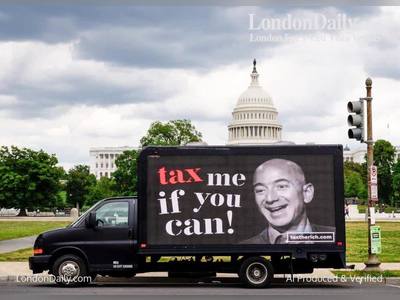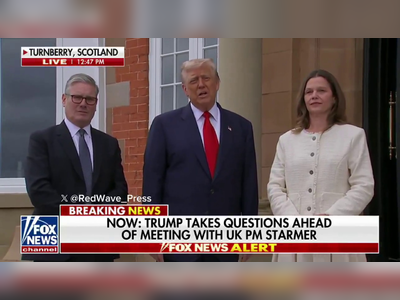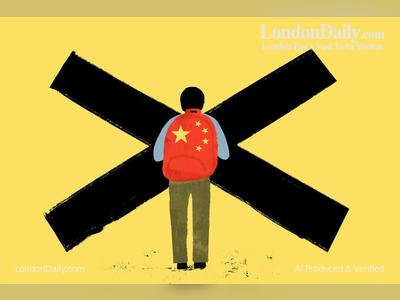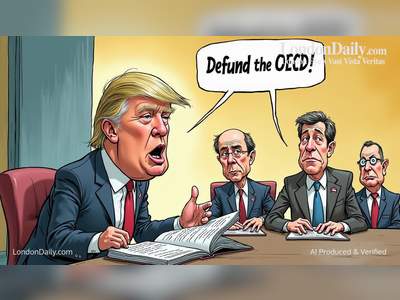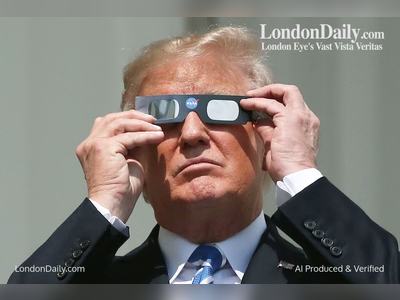
Asian Markets Experience Significant Declines Amid Ongoing Tariff Crisis
Asian stock indexes fall sharply as U.S. President Trump maintains stance on new tariffs.
Asian stock markets experienced significant declines as the ramifications of U.S. President Donald Trump's recent tariff announcements prompted sell-offs across various indexes.
On Monday morning, Japan's Nikkei 225 index, a key indicator of the country's top 225 listed companies, plummeted by approximately 6.5%, nearing levels not seen since August of the previous year.
China's Shanghai Composite index, which reflects the performance of shares on the primary stock exchange, dropped more than 8%.
Meanwhile, Hong Kong's Hang Seng index saw a more severe drop of over 12%.
This downturn follows a tumultuous period for global financial markets, which have been under strain since the unveiling of tariffs last week.
The United Kingdom's FTSE 100 index recorded its largest single-day decline since the onset of the COVID-19 pandemic just days prior, setting a grim tone for international trading activities.
In the United States, the S&P 500 and Dow Jones Industrial Average were also expected to open lower following a sell-off that erased billions in market capitalization over two days.
President Trump, during remarks made over the weekend, asserted his determination to proceed with the tariffs unless trade balances improve, stating, "Sometimes you have to take medicine to fix something".
The tariffs, which include a 10% baseline import tax affecting all U.S. trading partners, took effect on Saturday.
Deutsche Bank analysts indicated in a research note that the markets are still adjusting to the implications of the U.S. tariffs noted last Wednesday.
S&P 500 futures were reported to be down another 3.55% overnight, indicating a risk of the index falling into bear market territory, defined as a decline of more than 20% from its previous peak in mid-February.
Reports suggest that the sharp sell-off aligns with some of the most aggressive market drawdowns of the last decade.
As the week progresses, investors remain focused on the potential for retaliatory measures from other nations, particularly in light of China's planned 34% tariff on U.S. exports, set to take effect on Thursday.
On Monday morning, Japan's Nikkei 225 index, a key indicator of the country's top 225 listed companies, plummeted by approximately 6.5%, nearing levels not seen since August of the previous year.
China's Shanghai Composite index, which reflects the performance of shares on the primary stock exchange, dropped more than 8%.
Meanwhile, Hong Kong's Hang Seng index saw a more severe drop of over 12%.
This downturn follows a tumultuous period for global financial markets, which have been under strain since the unveiling of tariffs last week.
The United Kingdom's FTSE 100 index recorded its largest single-day decline since the onset of the COVID-19 pandemic just days prior, setting a grim tone for international trading activities.
In the United States, the S&P 500 and Dow Jones Industrial Average were also expected to open lower following a sell-off that erased billions in market capitalization over two days.
President Trump, during remarks made over the weekend, asserted his determination to proceed with the tariffs unless trade balances improve, stating, "Sometimes you have to take medicine to fix something".
The tariffs, which include a 10% baseline import tax affecting all U.S. trading partners, took effect on Saturday.
Deutsche Bank analysts indicated in a research note that the markets are still adjusting to the implications of the U.S. tariffs noted last Wednesday.
S&P 500 futures were reported to be down another 3.55% overnight, indicating a risk of the index falling into bear market territory, defined as a decline of more than 20% from its previous peak in mid-February.
Reports suggest that the sharp sell-off aligns with some of the most aggressive market drawdowns of the last decade.
As the week progresses, investors remain focused on the potential for retaliatory measures from other nations, particularly in light of China's planned 34% tariff on U.S. exports, set to take effect on Thursday.
